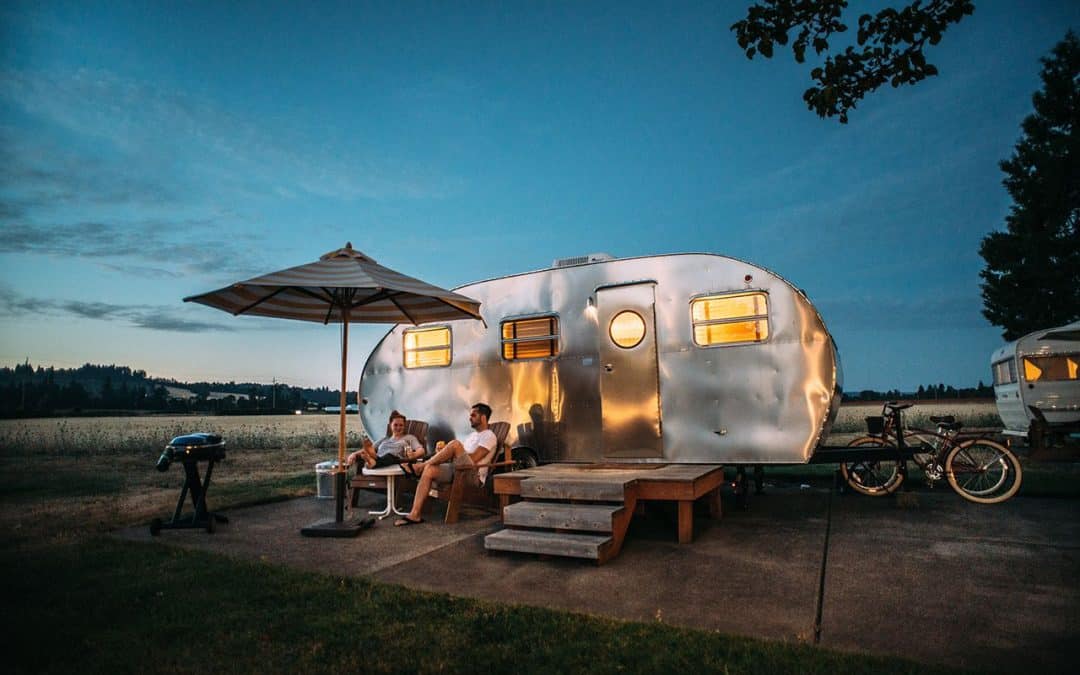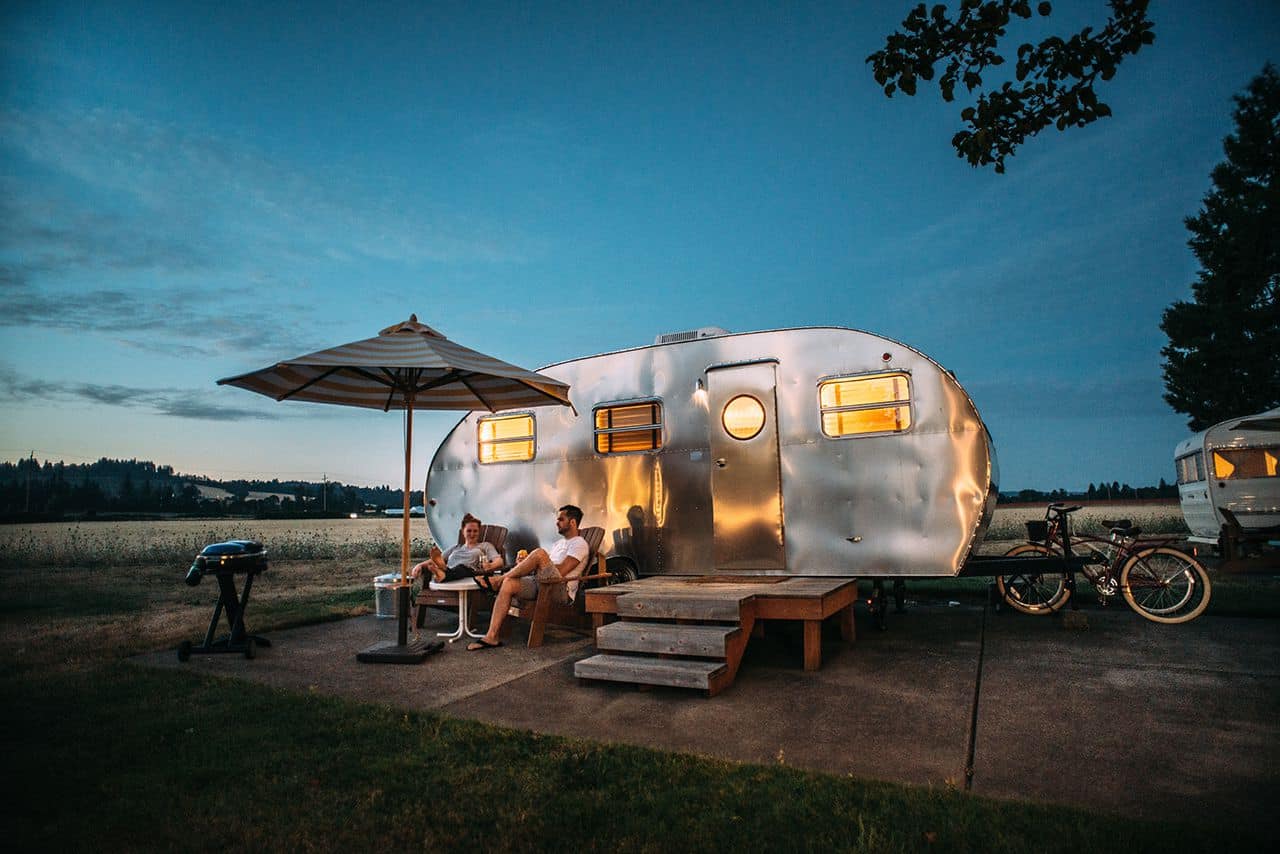
Towbars for Caravans.
Might seem a simple question to answer, but in reality a complex question in itself.
How do you match the right Towbar (in a sea of different Towbar options) with the right specifications for your caravan with a vast range of caravan specifications?.
Well, if you’ve been pondering about this question, we’ve got you covered.
In this ultimate guide, we’ll cover everything you need to know about matching the right Towbar to your caravan.
From understanding the intricacies of Towbars to finding out the specifications of your own caravan, you’ll be well on your way to zooming in on the perfect Towbar for that caravan you’re bringing on your adventure outdoors this weekend.
Let’s begin!
Breaking Down Our Thought Process
Before we get into the article, let’s take a look at how we can arrive at the right decision for the Towbar that you’re planning to install on your vehicle.
Firstly, we’re going to take a look at the different types of Towbars out there in the market, and then zoom in on specific Towbars that are made for heavy loads like caravans.
We’re also going to take a look at some additional information that might come in handy in your decision to buy a Towbar for your caravan.
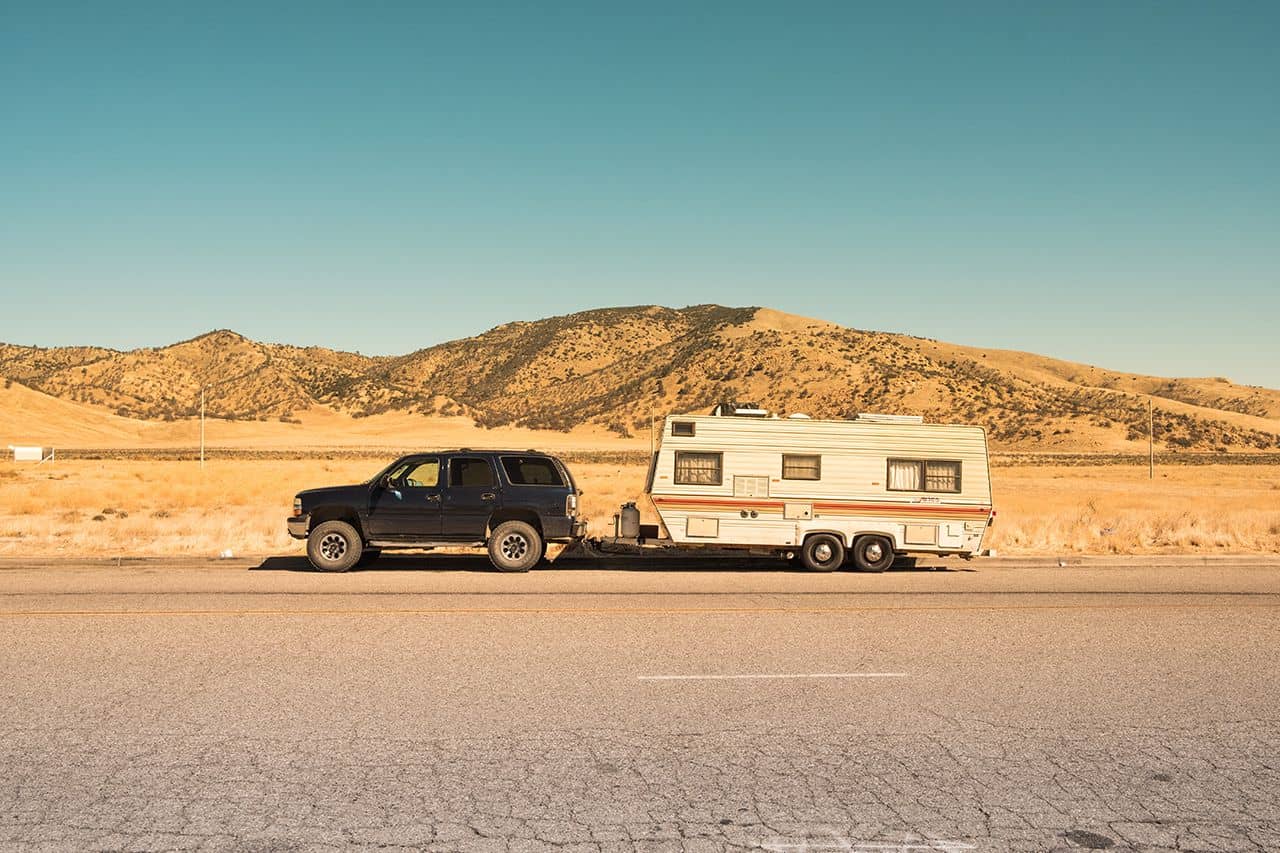
Lastly, we’ll combine our findings from both sides, and arrive at the right Towbar for your caravan and recommend some choices that you can consider.
The Different Types Of Towbars
In this first section, we’ll look at the different types of Towbars that are available for purchase in the market.
If you’re new to the Towbar industry, fear not. This section will show you everything you need to know to understand Towbars completely!
The 3 Styles Of Towbars
Generally speaking, there are 3 different styles of Towbars out there. Let’s look at each one in detail.
The Flat Bolt On Tongue Towbar – Class 2
The Flat Bolt On Tongue Towbar is distinct in its design – it comes with a detachable tongue/lug/ballmount that bolts firmly against a plate on the Towbar.
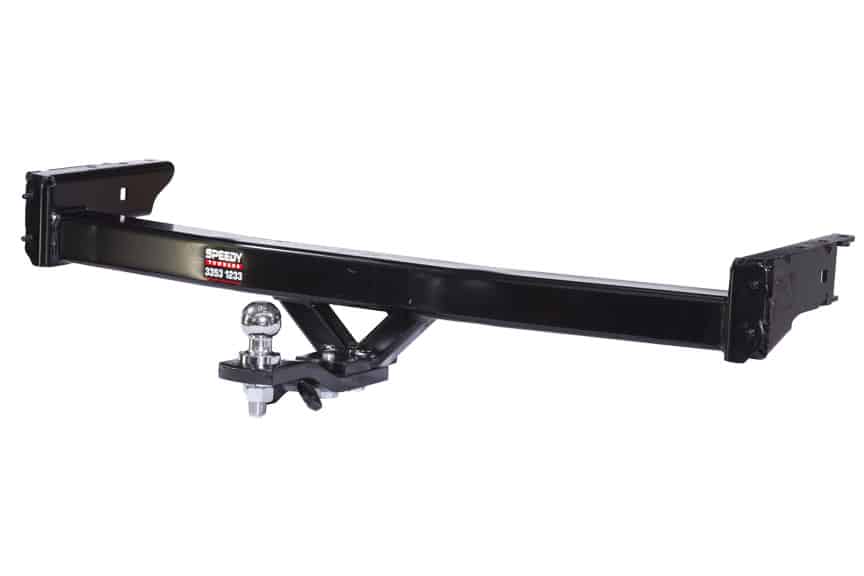
This tow ball “tongue” is then secured in place using two large 24mm head bolts that go through the tongue and into the plate of the Towbar.
The Flat Bolt On Tongue Towbar (class 2) is typically used in lighter duty applications and isn’t a towbar that would typically be used if you’re searching for a towbar for towing a larger caravan, however, if your caravan is quite small up to 1,600kg than the class 2 could be utilized. An important side note, if you’re also looking for a towbar for bike carriers, a class 2 towbar can only be used with ball mounted carriers reducing your options.
Case in point?
Our Standard Towbar (Class 2) has a “flat bolt on the tongue” that is rated up to a maximum 1,600kg and is idea for light towing options like a 6×4 box trailer, or a small hybrid camper.
Vertical Hitch Towbar – Vertical Class 4
Vertical hitch or vertical class 4 towbars are a heavy duty option that is available for some vehicles, mostly luxury European and electric vehicles..
They aim to provide a high towing capacity while not taking away from the vehicle aesthetics when not towing.
You can recognize these Towbars from the flat Class 2 style tongue that comes from under the bumper. However instead of the two bolts, it has the Heavy Duty Class 4 hitch hidden behind the bumper, with the same pin and clip retention system for the ballmount.

Horizontal Hitch Towbar
Finally, we come to the Horizontal Hitch Towbar, which can be recognized by its 40mm or 50mm square ballmount that connects to the hitch receiver and is held in place by a pin and clip.
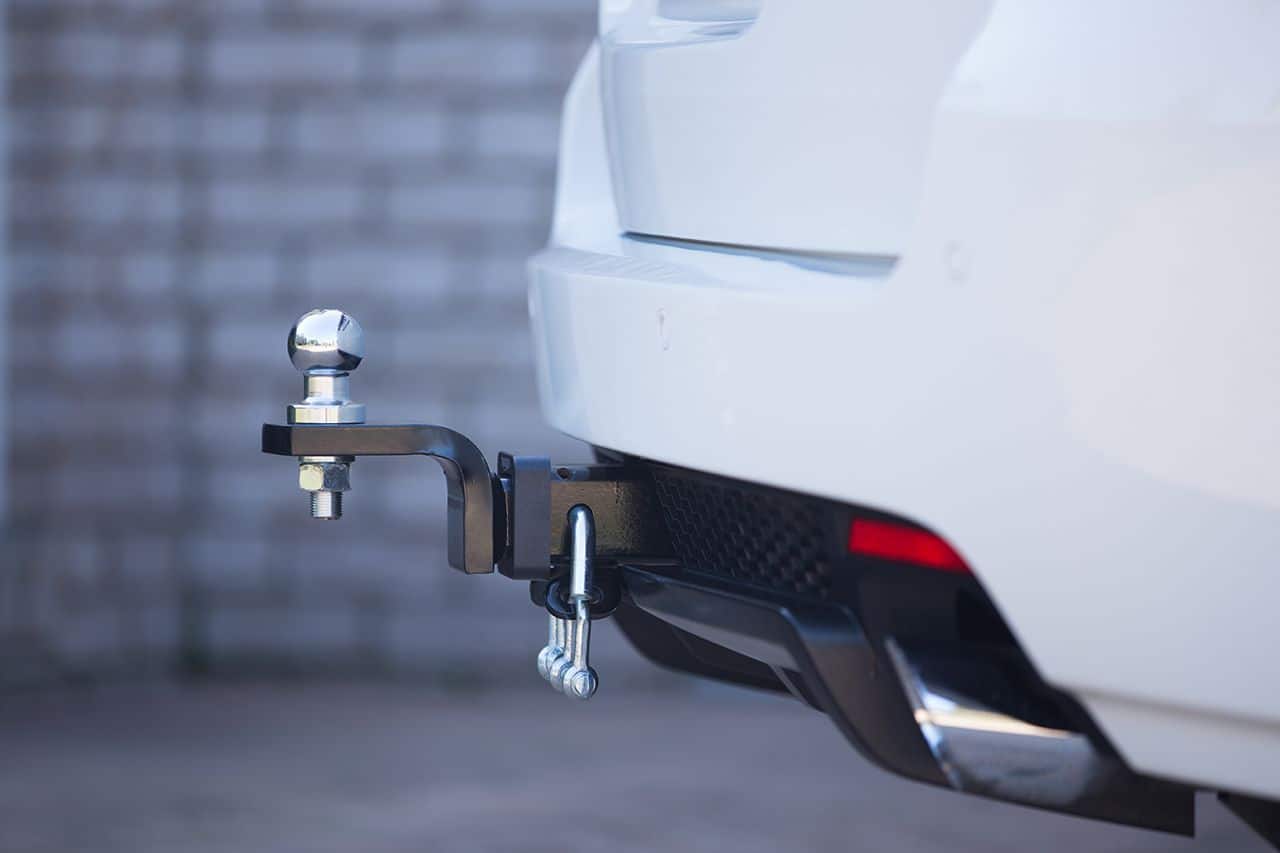
The Hitch is the section of the towbar where the ballmount slides into, the ballmount is the part that the towball itself bolts to. This is the part of the towbar held in with the pin and clip and on aftermarket towbars can be changed out to achieve different towball heights.
This Towbar comes in 2 versions, depending on the amount of weight that they carry and different vehicle applications.
Jr (Junior) 40mm Medium Duty Version Horizontal Hitch Towbar – Class 3
The first version has a 40mm hitch, which was commonly used in the late 2000’s, however now in 2024 they are virtually obsolete typically not being designed for modern vehicles. The Class 3 towbar is used for medium sized loads, which might not be what you’re looking for if you’re considering towing a caravan, or car trailer. The class 3 towbar has a limited range of ballmounts available and can be difficult to source replacement parts for often making them more expensive in the long run. as such we don’t recommend the class 3 if there is a class 4 available for your vehicle..
50mm Heavy Duty Version Horizontal Hitch Towbar – Class 4
Horizontal Hitch Towbars also come in a heavy duty 50mm version, which is commonly referred to as a Class 4 Towbar, these are found on most 4×4 Utes, SUV’s and 4×4 Wagons.
Class 4 Towbars are designed for heavy-load towing and are typically rated for maximum towing capacity of the vehicle. When combined with the wide range of ballmounts that are available you can typically achieve a wide range of towball heights.
This means that the 50mm Class 4 Hitch Towbar can safely tow heavy loads like Caravans, Large Trailers, Boats and Horse Floats. While supporting the use of leading brand weight distribution hitch systems and ensuring you can get your trailer level for safe towing.
Additional Considerations If You’re Towing A Caravan or Larger Trailer
A Note About Weight Distribution Systems
You might not know this, but a Weight Distribution System can be a critical component for your road trip if you’re considering towing a caravan with a high ball weight for the capabilities of your vehicle.
When you’re towing along something as heavy as a large trailer or caravan, there’s can be a large amount of weight pushing downwards on the towball. the vehicle acts like a see-saw pivoting over the rear axel. as the weight pushes down on the towball the weight over the front axel reduces which leads to light steering and a vehicle that “walks” left and right on the road and you end up fighting the steering wheel the whole trip to keep your car travelling straight. Plus in an emergency situation your vehicle may suffer from understeer sending you straight off the road.
When you add to that the uneven weight distribution the often rough condition of Australia’s roads, and you might find one side of your vehicle hanging off a cliff if you’re not careful.
That’s where weight distribution systems come into the picture.
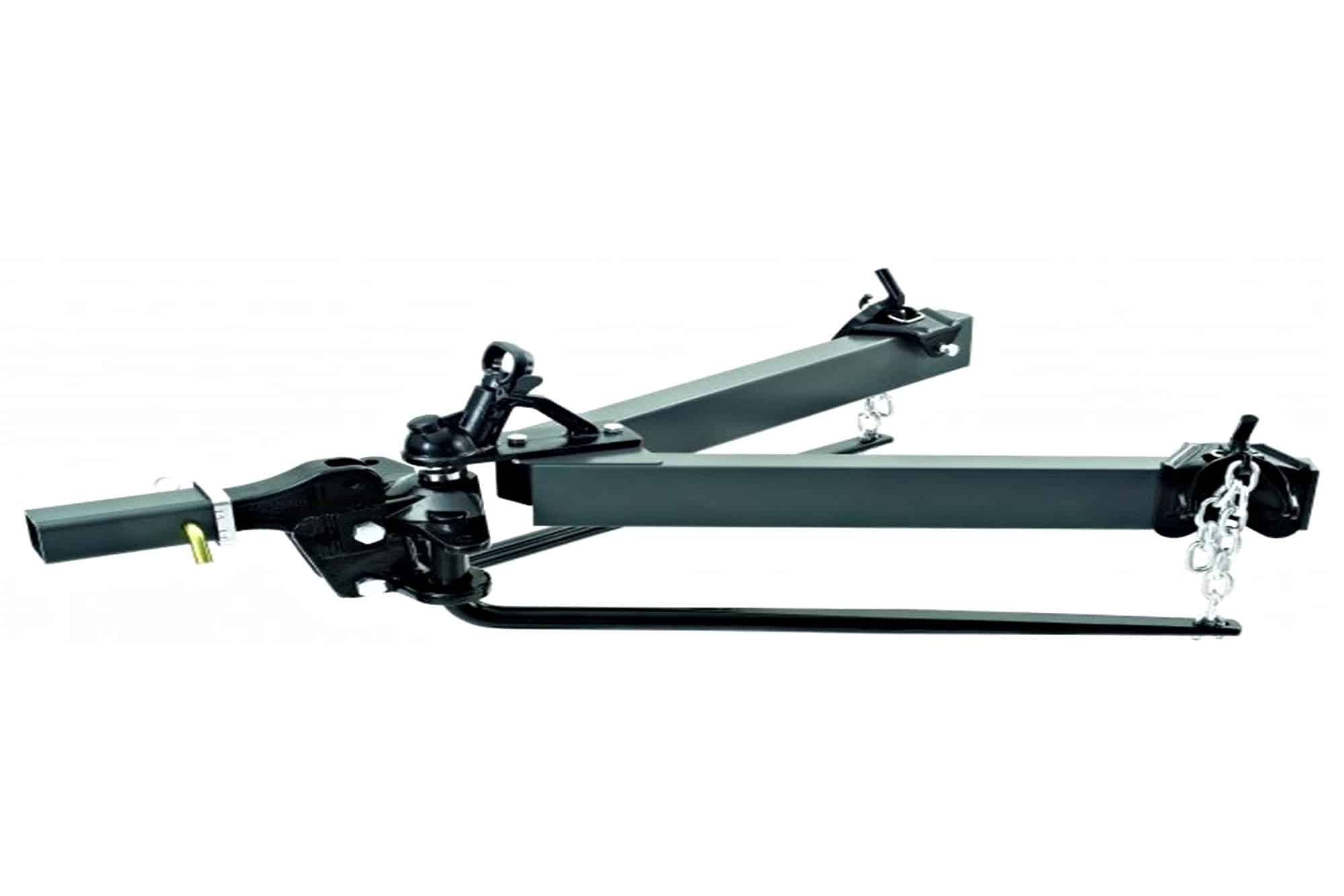
A weight distribution system is designed to transfer some of the load from the Towbar ball to the front suspension of the towing vehicle, allowing for an even distribution across all wheels.
Towbar companies like Speedy Towbars carry the full range of weight distribution hitches from Hayman Reese and Trailboss.
You know the old saying: “It’s better to be safe than sorry!”
Electric Brakes
Australia road rules state any trailer that exceeds 750kg must have brakes fitted. Trailers with an electric brake system fitted will require a brake unit installed in the vehicle in order to activate the trailers brakes.

This means that if you’re considering a Towbar for your caravan and you haven’t purchased an Electric Brake Controller yet, then you will most likely need to get one – both for your safety, and to be on the safe side of the law!
Companies like Speedy Towbars has a large range of brake controllers from trusted brands such as Redarc, Hayman Reese and Tekonsha, so we know that we will have a brake controller to suit your needs.
The pick of brake controllers is the Redarc Towpro Elite V3, these controllers provide a safe and minimalistic install with the main unit is mounted remotely and only a small dial on the dash. Unlike some other controllers that have bulky control units hanging off the dash. The Towpro also utilises state of the art accelerometers to provide a variable brake force to the trailer brake system ensuring a smooth experience.
Anderson Plugs and Isolators
Today’s caravans (and even large camper vans) require more power to operate than ever before. This means that to keep the batteries of the caravans from draining out, you” most likely need Anderson Plugs installed onto your vehicle’s towbar to provide power to your trailers electrical system.
We recommend the use of automatic Isolators in the Anderson Plug circuit to help protect your vehicles start batteries from being drained when you’ve stopped for a break, which might leave you stranded in the middle of nowhere.
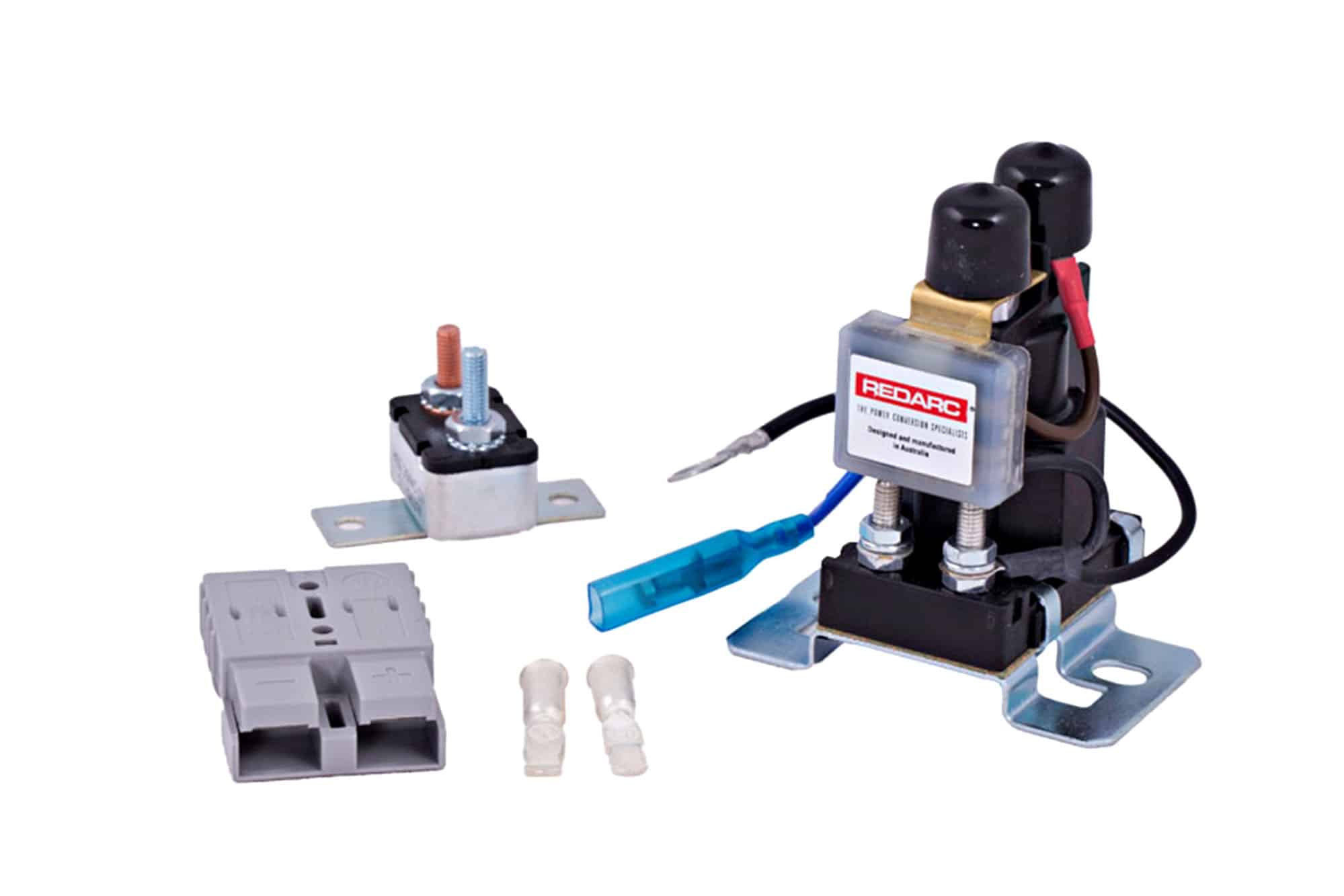
In short, Anderson Plugs and Isolators are key for ensuring your caravan fridge and batteries are charged and that your caravan is always powered while your travelling.
At Speedy Towbars, we help clients like yourself install high amp Anderson plugs and isolators that keep your caravans electronics running. We only use the highest quality product from trusted brands like Redarc, Anderson and Britax.
All our Anderson plugs are wired with twin 8mm B&S double insulated cable for peace of mind.
Understanding Towbar Classes
In this section, we’ll go a little further into letting you understand the different classes of Towbars recognized by the Australian Government.
This will help you later on as we explain our rationale behind the right Towbar (Class 4) for that Caravan of yours.
Let’s begin!
The Different Types Of Towbar Classes
| Class 2 | Class 3 | Class 4 | |
| Towbar Type | Standard Towbar | Medium Duty Towbar | Heavy Duty Towbar |
| Hitch Type | Flat Tongue | Horizontal Hitch | Horizontal Hitch |
| Example Load | Small Trailer | Medium Trailer | Large Trailer – Caravan |
| Max Load Rating | 1,600kg | 1,600kg | 3,500kg |
| Weight Distribution Hitches | No | No | Yes |
| Accessories | Not all | Not all | Most Accessories |
Based on the table above, you can see a quick breakdown of the different types of Towbar classes out there in the market.
Let’s deep dive a little into each one.
Class 2 Towbars – Standard Towbars
Class 2 Towbars are called Standard Towbars at Speedy Towbars.
They are generally Towbars that can lift from 1,200kg-1,600kg, depending on the manufacturer and the exact specifications.

Our standard Class 2 Towbar, has a ‘flat bolt on tongue’ that attaches by two bolts. It is rated up to 1600kg and standard Towbars are suitable for small to large vehicles.
As you can see from the table, Class 2 Towbars are generally fit for a range of vehicles but are not the best fit for caravans, since they do not support most Towbar accessories along with limited support for Weight Distribution Hitches or towball height adjustment which is most likely needed for your caravan.
Class 3 Towbars – Medium Duty Towbar
As we go up one level from Class 2 Towbars, we arrive at Class 3 Towbars; a series of Towbars that can support heavier weights than Standard Towbars.
Even though the maximum load for Class 2 and Class 3 Towbars are similar, Class 3 Towbars are generally recommended for medium to larger vehicles, such as a Large Box Trailer, or a small boats.
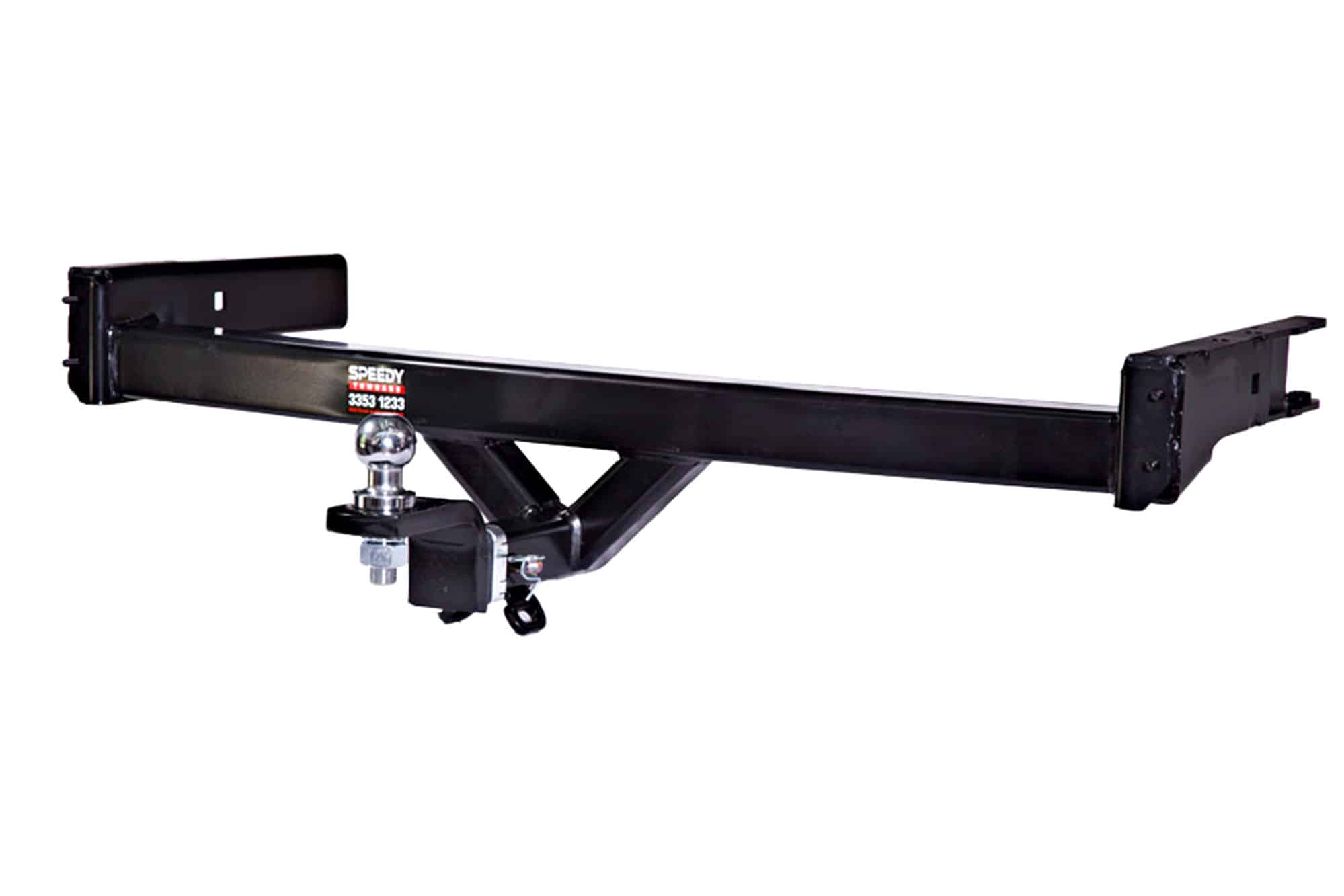
However, Class 3 Towbars are still a limited fit for your caravan, since they don’t support Weight Distribution Hitches, and have a limited ability to change ball height like Class 2 Towbars.
If it’s not Class 2 Towbars, nor Class 3 Towbars, then that has to lead us to an obvious answer for the right Towbar for towing your caravan or large trailer…
Class 4 Towbars – Heavy Duty Towbars
Finally, we think that the right Towbar that you should be looking at for your caravan is a Vertical Class 4 Towbar.
As we’ve previously discussed, a Class 4 Towbar comes with an industry standard square 50mm x 50mm horizontal hitch box with a pin and clip.
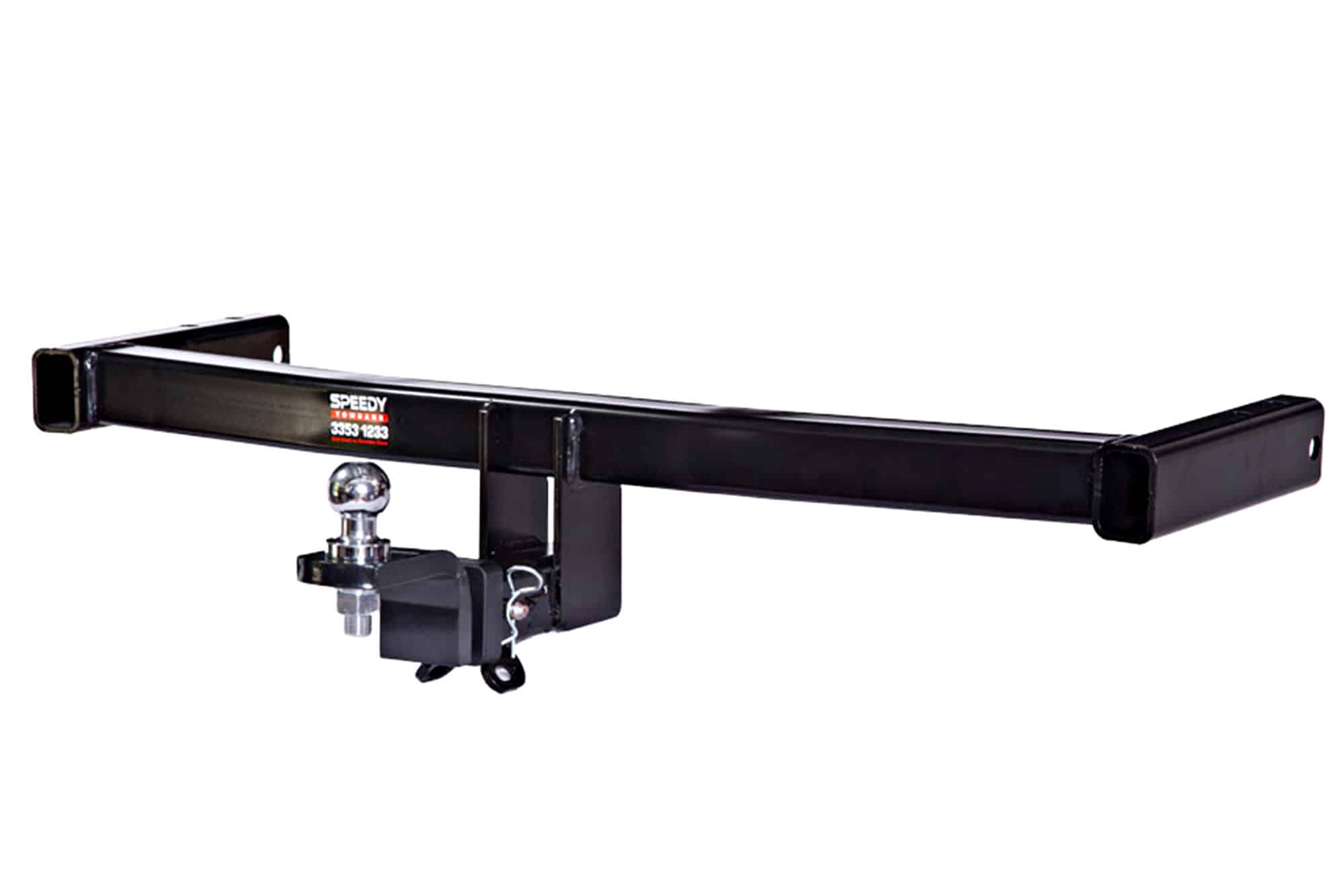
It is also typically rated for the maximum towing capacity of the vehicle and is designed for towing caravans and other really large trailers, like larger boats, and horse floats.
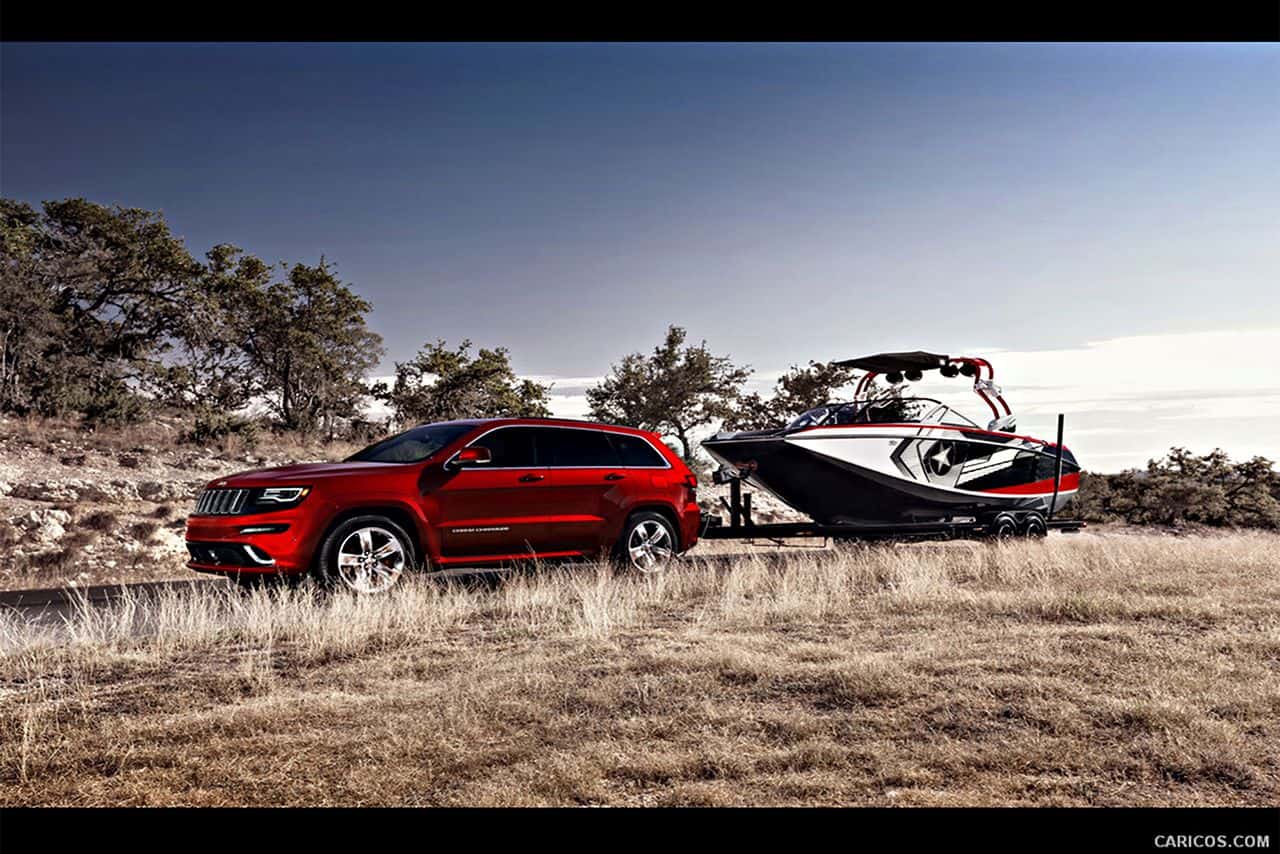
As an added bonus, our heavy duty Horizontal Towbar is compatible with most accessories and weight distribution hitches – so that means that you have that additional option to add critical functions to your towing systems like Electric Brakes and Weight Distribution hitch systems.
A Class 4 Towbar Is The Right Choice For Towing Your Caravan
Now that we have broken down the different types and classes of Towbars, it’s quite clear that the best Towbar for towing your caravan is a Horizontal Class 4 Towbar.
Due to its ability to carry the heaviest load of all 3 classes of Towbars and comes fully compatible with accessories, Electric Brakes, and Weight Distribution systems, there’s really no reason to look any further than a Class 4 Towbar for your caravan!
How To Buy A Towbar For Towing Your Caravan
Now that you know that a Class 4 Towbar is the right option for your Caravan, let’s take a closer look at how you can actually buy a Class 4 Towbar and some other additional add-ons to keep in mind when you choose and purchase a Class 4 Towbar.
Choose Reputable Brands
When you’re talking about purchasing a Class 4 Towbar that could mean the difference between a fun weekend at the campsite, or being stranded halfway on your trip because of a broken Towbar, we think that it justifies choosing a reputable brand.

In this case, choose from reputable brands and sellers like Speedy Towbars, that has over 140 years of combined automotive industry experience, and specializes in installing towbars to European, Japanese and other vehicles from all over the world.
In fact, Speedy Towbars has the largest range of Towbars for European vehicles in Australia, so you’re never going to go wrong with them choosing a Class 4 Towbar for your caravan.
Seek More Help If You’re Still Uncertain
It’s okay to still be uncertain about the right Class 4 Towbar to get – after all; we don’t expect you to become a total expert just by reading this guide alone (not everyone are Towbar nerds like we are)!
When you eventually make the decision to purchase a Class 4 Towbar, be sure to utilize the free support and chats that reputable brands and Speedy Towbars provide.
Speedy Towbars, for example, offers an online chat service that is available to tend to your needs during business hours, or lets you leave a message so we can get back to you.
Mobile Service, Anyone?
When you’re booking a Towbar Installation, make sure to leverage our mobile services that Speet Towbars offer.
Speedy Towbars offer a quick, fuss-free and professional mobile service, where our technicians travel down to your location at your convenience.

As an added bonus, each Speedy Towbars van carries a portable EFTPOS machine, offering full credit and debit payment options.
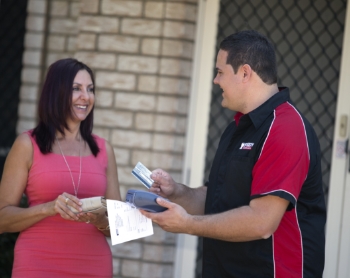
Our technicians also have the latest Milwaukee® 18V cordless tools allowing us to complete the job without the need for power or air in a Speedy mannor.
Look For Warranties Before You Buy
Make no mistake: Class 4 Towbars can be expensive. And painful, if you don’t get it covered under warranty.
That’s why before you purchase yours, be sure to check with your Towbars brand whether or not they offer warranties on their products.
Speedy Towbars, for example, offers Lifetime Warranties on all our products as a standard.
We’re not just serious about our service; we’re confident in our products and giving you peace of mind too.
Ready To Buy A Class 4 Towbar For Your Caravan?
If you still have questions, use 3 simple methods to contact us to get started right now:
1. Either click on the number on the top right of the website to book a Towbar installation appointment right now
2. Fill up the easy form on the right-hand side of this guide to schedule a Towbar installation
3. Use the “Leave a message” button at the bottom right of this guide to drop us a message – we’ll get right back to you soonest possible!
We can’t wait to get you started on your Towbar Installation right now!

